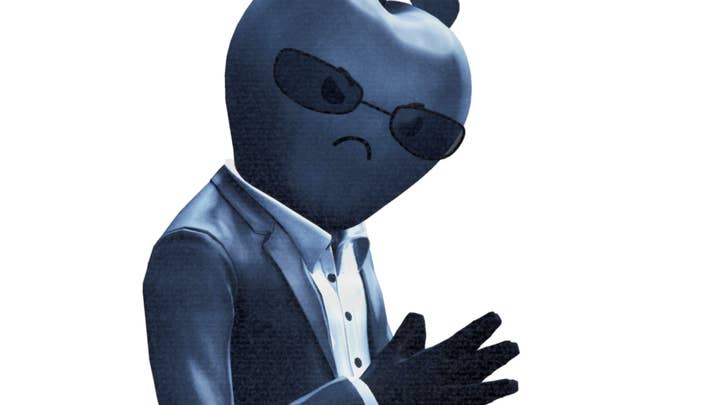Epic Games vs. Apple -- the legal issues
Gamma Law's David B. Hoppe weighs up both sides of a potentially game-changing legal battle
As the legal wrangling between Fortnite maker Epic Games continues to spiral, both companies' public relations teams are working overtime. Through dueling social media posts, parody videos, and plenty of grandstanding, Apple and Epic are working hard to sway gamers to their respective sides.
But whose side is the law on? That, of course, is a matter for the court to decide, but we can gain some insight into how the ruling may play out by examining regulatory rulings from previous, similar cases.
In its original complaint dated August 13, Epic stated: "Apple's removal of Fortnite is yet another example of Apple flexing its enormous power in order to impose unreasonable restraints and unlawfully maintain its 100% monopoly..."
Epic has a potentially hard road ahead, as it will need to provide evidence supporting its claims, including what actually constitutes "the market" for purposes of its antitrust allegations. Epic's complaint asserts that the market comprises all iOS mobile devices, but Epic awkwardly separates the market into two pieces: 1) the app distribution market and 2) the app "payment processing" market.
Defining the market
"If the market consists of all mobile devices, Epic may not be able to prove that Apple has a monopoly"
If iOS mobile devices constitute the market, Epic will have a much easier time establishing that Apple engages in "anticompetitive conduct" and "monopolizes" the market for three reasons: (1) Apple prevents other companies from setting up their own app stores; (2) Apple prevents other companies from providing their own "payment processing" services in the market; and, of course, (3) Apple imposes an arguably unreasonably high fee upon sales in the market (30%), to the detriment of consumers.
However, if the market consists of all mobile devices, Epic may not be able to prove that Apple has a monopoly. The FTC states that, in antitrust cases, "Courts look at the firm's market share, but typically do not find monopoly power if the firm (or a group of firms acting in concert) has less than 50 percent of the sales of a particular product or service within a certain geographic area. Some courts have required much higher percentages."
Apple accounts for about half of the smartphones market in the US and a much lower market share globally. There are approximately 2.5 billion active Android users compared to Apple's 1.4 billion users.
In the 1992 case Eastman Kodak Co. v. Image Technical Servs. Inc., the US Supreme Court discussed the issue of defining the market: "Because service and parts for Kodak equipment are not interchangeable with other manufacturers' service and parts, the relevant market from the Kodak equipment owner's perspective is composed of only those companies that service Kodak machines." The Court further explained that this was an issue of fact, meaning that it is case-specific.

Applying this precedent to Epic Games, it's possible that a court could apply a narrow definition to the market. In the case of Kodak, because the Court viewed the market narrowly, it found that Kodak controlled nearly 100% of the parts market and 80% to 95% of the service market. Should the court agree with Epic Games that the market is all iOS mobile devices, then it will be fairly easy for Epic to demonstrate that Apple holds a near (or complete) monopoly over that market.
But, if the market encompasses non-iOS mobile devices, Epic may fail. While Apple's US market share is around 50%, its global market share is only around 35%. In United States v. Aluminum Co. of America, the Second Circuit Court of Appeals stated: "it is doubtful whether sixty or sixty-four percent [of the market] would be enough; and certainly thirty-three percent is not."
An interesting parallel can be made to the Department of Justice's antitrust suit against Microsoft for its anti-competitive practices. The court defined the market as "operating systems software for IBM-compatible personal computers." Based on that definition, Microsoft's market share was above 90% and, at times, even higher than 95%. The court therefore determined that Microsoft held a monopoly position.
According to the FTC, Microsoft was able to use its dominant position in the operating systems market to "exclude other software developers and prevent computer makers from installing non-Microsoft browser software to run with Microsoft's operating system software." More specifically, the court determined that Microsoft illegally maintained its operating systems monopoly by including Internet Explorer, Microsoft's internet browser, with every copy it sold, "making it technically difficult not to use its browser or to use a non-Microsoft browser."
"Epic's allegations of Apple's anti-competitive practices closely parallel those outlined in Microsoft"
Additionally, Microsoft granted rebates and sometimes even free licenses to incentivize the use of its software. This practice discouraged other software developers from promoting non-Microsoft browsers. The court acknowledged that Microsoft did not "tie up" all forms of competition, but Microsoft's actions effectively prevented rivals from using the lowest-cost means of winning market share from Microsoft.
The Department of Justice, along with the individual states that joined the lawsuit, wanted Microsoft to be broken up. However, the case turned into a legal saga with many appeals and other twists, including the revelation that the trial judge gave personal interviews to the media while the case was ongoing. After many years of litigation, Microsoft agreed to stop certain anti-competitive conduct that prevented the development of competing browsers.
Epic's allegations of Apple's anti-competitive practices closely parallel those outlined in Microsoft. As described in Epic's motion for TRO [temporary restraining order]:
"Apple has for years used its complete monopoly over the distribution of apps to the billion users of iOS, the Apple operating system ("OS") running on all iPhones and iPads, to coerce app developers into using Apple's payment platform, In-App Purchase ("IAP") for all in-app purchases of digital content used in their apps. By tying IAP to app distribution, Apple eliminates all competition in the market for in-app payment processing, allowing it to impose an exorbitant 30% 'app tax' on all in-app purchases of in-app content."

Antitrust allegation
Epic also explains that Apple's tying of IAP to app distribution violates Section 1 of the Sherman Antitrust Act -- the primary antitrust law. To successfully bring a tying claim under the Sherman Act, "...a plaintiff must prove: 1) that the defendant tied together the sale of two distinct products or services; 2) that the defendant possesses enough economic power in the tying product market to coerce its customers into purchasing the tied product; and 3) that the tying arrangement affects a not insubstantial volume of commerce in the tied product market." Cascade Health, 515 F.3d at 913 (internal quotation and citation omitted).
Once again, the definition of the relevant market is critical. Epic points out in its TRO that the European Commission, upon discovering that Google violated European anti-competition law, found that "app stores for other licensable smart mobile OSs" and "for non-licensable smart mobile OSs such as Apple's App Store... do not belong to the same product market as Android app stores." Of course, in this situation 100% of all iOS mobile app distribution takes place through the App Store, so if Epic gets its way, Apple clearly holds a monopoly in this narrow definition of the market.
However, the Epic Games vs. Apple battle presents an interesting issue: what happens when the defendant in an antitrust lawsuit actually created the very market it is accused of monopolizing? There is no legal precedent to assist in predicting how the court may feel about this unique situation.
However, Wired Magazine reported that Senator Elizabeth Warren (D-Massachusetts) wants to prohibit tech companies like Facebook, Google and Amazon from participating on the platforms they own. "Her plan, which was applauded by anti-monopoly groups like Open Markets Institute, would prevent Amazon, for instance, from selling Amazon-branded products on its own marketplace, and would require Google's ad exchange and Google Search to be split apart." Warren explained that this plan would also necessarily mean breaking up Apple and the App Store: "Either they run the platform, or they play in the store. They don't get to do both at the same time."
That said, Senator Warren's stance ignores the fact that Apple, as a market operator, builds and maintains its own technology platform, which consumers voluntarily choose over alternative offerings. Part of the value being offered is the so-called "walled garden," where third-party apps are carefully vetted, fraud is actively policed and shut down, and the technology is maintained and improved continually. This is precisely Apple's position on the matter.
Defining the market is critical for a court to rule on this case. There are three viable definitions, each with factual support: 1) all iOS mobile devices; 2) all mobile devices in the US; and 3) all mobile devices globally. It remains to be seen which way the court will decide, but one thing is clear: any decisions stemming from the Epic Games vs. Apple lawsuit -- no matter which side the decisions favor -- will certainly have epic effects on the future of apps and in-app purchases.
David B. Hoppe is managing partner of Gamma Law, a boutique firm focusing on the legal aspects of video games, esports, virtual reality, digital media and other cutting-edge technology businesses. With nearly 25 years' experience as an international transactional attorney with hands-on understanding of the day-to-day realities of startups, growing companies, and enterprises going global, David represents clients at every stage of the business lifecycle, from startups and entrepreneurs to global publicly-listed corporations. He is also the author of Esports in Court, Crimes in VR, and the 51% Attack: Key Trends and Developments in Esports, VR and AR, Blockchain and Cryptocurrencies (Vision 2020 Press, 2020), which chronicles the most dynamic and rapidly evolving industries of our time.
